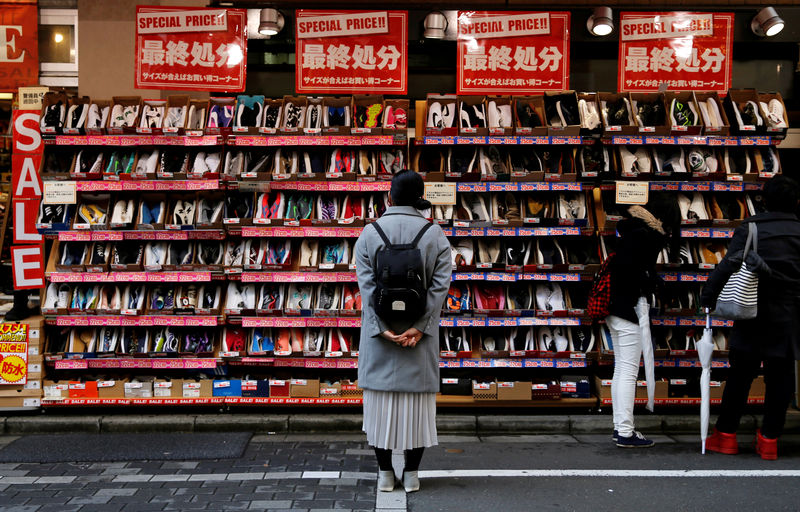By Tetsushi Kajimoto
TOKYO (Reuters) - A leading indicator of Japan's core consumer inflation slowed for a second straight month to its lowest rate in more than a year, underscoring the challenge for the central bank in hitting its 2% price target.
Government data released on Friday showed core consumer prices in Tokyo, a leading indicator of nationwide price trends, rose 0.5% in September from a year earlier, slowing from a 0.7% gain in the previous month.
The rise in the core consumer price index for Japan's capital city, which includes oil products but excludes fresh food prices, undershot the median estimate of a 0.6% increase.
It was the slowest growth since May last year and weighed by declines in energy prices.
"October's sales tax hike will serve as one factor for lifting inflation temporarily, but that will be offset by government steps to make pre-school education free of charge," said Masaki Kuwahara, senior economist at Nomura Securities.
"For the time being, energy-related items will weigh on core inflation, which will remain in a downtrend."
The stubbornly weak inflation and overseas headwinds are piling pressure on the Bank of Japan to ramp up an already massive stimulus program to forestall risks of a delay in hitting its elusive 2% inflation target.
The central bank will scrutinize the inflation data and other key indicators at its next rate-setting meeting on Oct. 30-31, when it conducts a quarterly review of its growth and price projections.
At its policy meeting last week, the BOJ signaled its readiness to expand stimulus as early as next month by issuing a strong warning about risks that threaten Japan's export-reliant economy.
But with interest rates at zero and companies wary about boosting spending amid growing uncertainty and risks, many analysts are skeptical that topping up monetary stimulus could accelerate inflation.
The so-called core-core CPI in Tokyo, which strips away the effects of both energy and fresh food prices, rose 0.6% in September, slowing from a 0.7% gain in August, the data showed.
Tokyo's overall CPI rose 0.4% in September from a year earlier, after 0.6% growth in the previous month.
Years of heavy money printing have failed to shake off entrenched deflationary mindset among the public and corporations, dashing the hopes of the central bank that aggressive stimulus will put an decisive end to deflation.

Under its current forecasts issued in July, the BOJ expects core consumer inflation to hit 1.0% in the current fiscal year ending in March 2020 and fall short of its 2% target for the following two years.